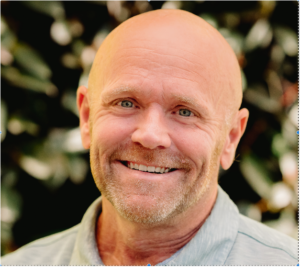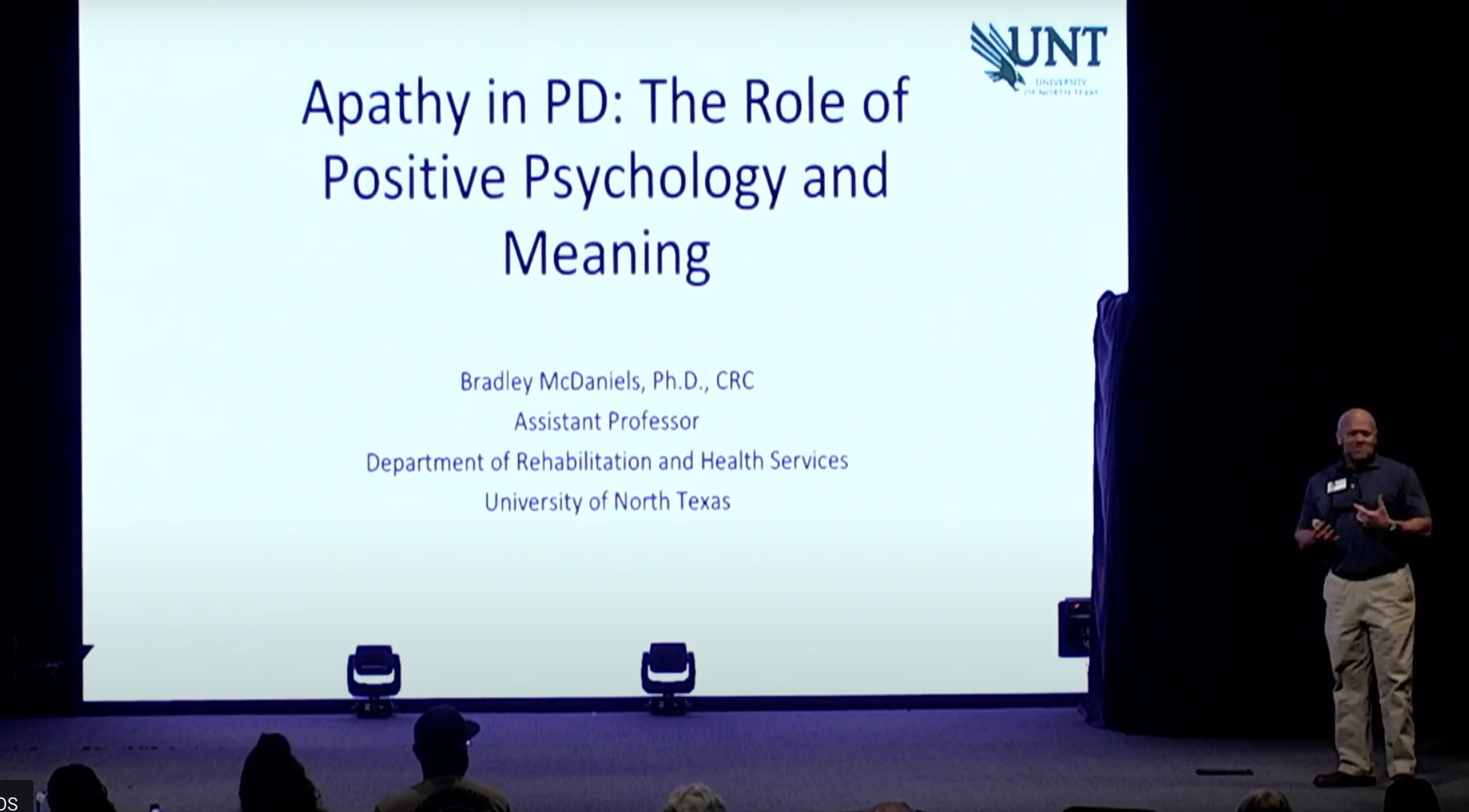An interview with Professor Bradley McDaniels from the Department of Rehabilitation and Health Services, University of North Texas on September 13, 2023 by George Ackerman, Ph.D, J.D.

Biography
Bradley McDaniels is an assistant professor and program coordinator for the Rehabilitation Studies program in the Department of Rehabilitation and Health Services at the University of North Texas. Brad earned his PhD from the University of Kentucky and after graduating, completed a Post-Doctoral Research Fellowship in the Department of Physical Medicine and Rehabilitation in the School of Medicine at Virginia Commonwealth University focusing exclusively on Parkinson’s disease. Before returning to graduate school, Brad spent nearly 20 years in the pharmaceutical industry. Brad’s entrance into the PD world was precipitated by his mother’s diagnosis in 2012. Brad is currently involved in research focusing on meaning in life, loneliness, demoralization, stigma, and other non-motor issues of PD.
Can you tell me more about your advocacy?
Following my mother’s PD diagnosis, I knew I wanted to do something to help her as she dealt with her disease. I discovered a love for research, and I have been publishing Parkinson’s papers for the last few years. If I can help make someone’s life a little better, I have been successful.
What is your passion and how did you get involved in Parkinson’s awareness and hope for a cure?
As mentioned, my mother’s diagnosis in 2012.
What type of goals do individuals with Parkinson’s have when working with you?
I spend significant time interacting with people with PD around the country/world with the goal of identifying areas of unmet need. I want to know what they are struggling with and try to find solutions that may offer some relief.
What type of training and how long are the programs?
I spent 5 years getting my master’s degree and PhD from the University of Kentucky. I am trained as a rehabilitation counselor, which stems from the field of rehabilitation psychology – a field that helps people with disabilities and chronic illnesses adapt to their new lives.
What effect can your advocacy have on an individual with Parkinson’s?
My hope is that my research will provide people with PD options for how to live a better quality of life. I am not looking for a cure or to change the world, just to make a small difference in the lives of people who want hope.
What would you like to see as a future goal for your advocacy?
I hope to continue to publish my work and to bring awareness to some of the underrecognized and under researched aspects of PD.
What events do you participate in?
I am a board member of the South-Central Region of the Parkinson’s Foundation, on the Science Advisory Board for the Davis Phinney Foundation, a Medical Board Member of the Dallas Area Parkinson Society (DAPS), Board Member of the Dallas-Ft. Worth Parkinson’s Resource, Board Member of Young Onset Parkinson’s Network.
How does your advocacy also assist the caregivers?
Not specifically (yet), but when we are talking about dealing with apathy, depression, anxiety, stigma, and demoralization, I think the principles apply to anyone affected by PD. I plan to include care partners in my future work.
How can someone get in touch? What is your website?
I do not have a website, but I am available through email (Bradley.mcdaniels@unt.edu), LinkedIn (Bradley McDaniels), X (formerly Twitter) (@McdanielsBrad), and ResearchGate (Bradley McDaniels).
How can others also become advocates for awareness?
Education is the first step. Make sure you are informed about PD and all of the intricacies and challenges associated with the disease. After that, go to the national organizations and get involved in their events that are help all around the country, get involved in research as available, and donate to help.
In your opinion what is the key to effective advocacy?
Finding a cause that you are intimately interested in and get involved! We need all kinds of people to help move the understanding of PD forward and to help improve the lives of those affected.
If you had one final statement or quote you could leave for the Parkinson’s community, what would it be?
“The greatest task for any person is to find meaning in his or her own life.”
Viktor Frankl
Whether one has PD or is affected by it, meaning can be found in the journey. Meaning makes life worth living.

